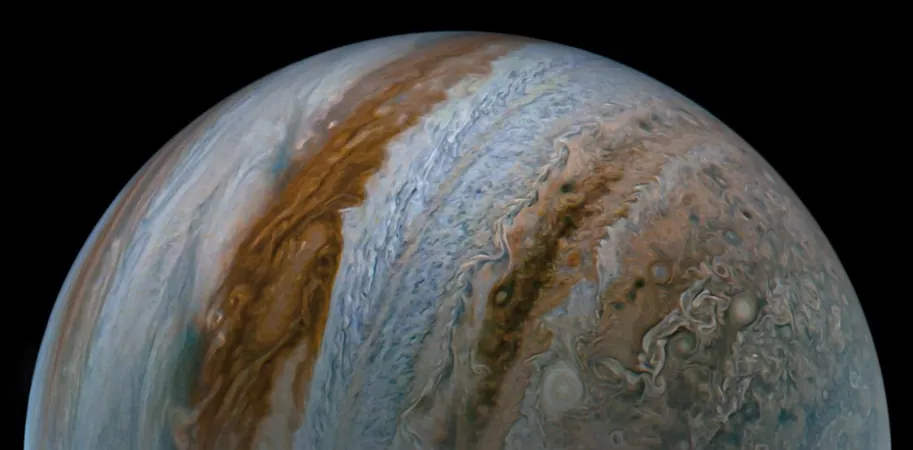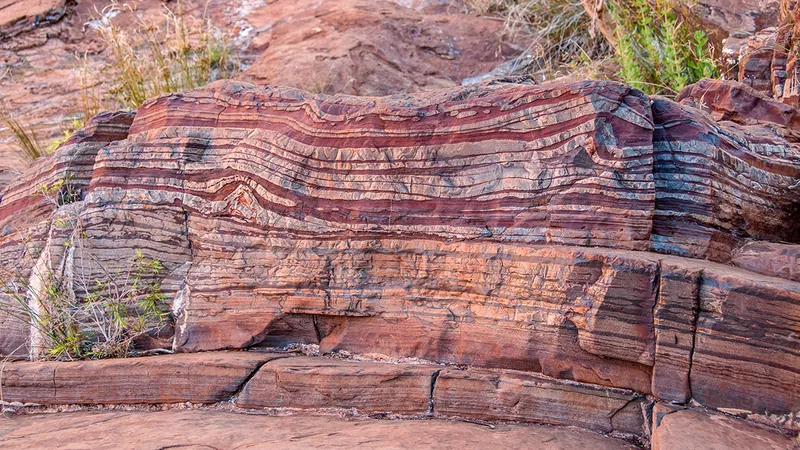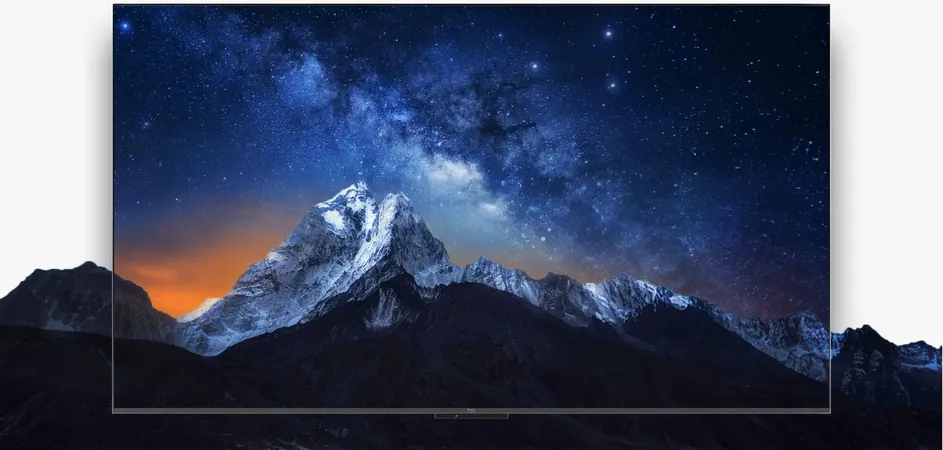
The Enigmatic Nature of Jupiter: Why This Gas Giant Has No Surface
2024-11-04
Author: Jacob
Have you ever wondered why Jupiter, the largest planet in our solar system, appears to have no surface, despite its enormous size? Let’s delve into this fascinating question!
To begin with, Jupiter stands out as a gas giant, unlike our rocky home Earth. It is so colossal that it could fit over 1,000 Earths inside it! Positioned as the fifth planet from the Sun, Jupiter is a swirling sphere composed mainly of hydrogen and helium gases. While Earth and its neighboring planets are made of solid material, Jupiter's immense body lacks any solid ground to stand on.
But how does one interact with a planet that has no solid surface? Let’s explore what lies beneath Jupiter’s tumultuous atmosphere. As you descend through its layers of gas, the pressure increases dramatically. Think about diving deep into the ocean – while the pressure around you is from water, on Jupiter, it’s all about gas. This pressure becomes so intense that it would crush any human or spacecraft attempting to reach deeper levels.
Around 1,000 miles down, remarkable transformations occur. The gas begins to transition into a strange, liquid hydrogen state, forming what can be described as the universe’s largest ocean – an ocean of hydrogen, not water! If you venture even deeper, around 20,000 miles down, the hydrogen morphs into a state resembling flowing liquid metal, known as metallic hydrogen. This exotic material has only recently been recreated in labs here on Earth, showcasing the incredible conditions found within Jupiter.
At the very core of Jupiter lies an intensely hot and high-pressure environment, where temperatures reach a staggering 35,000 degrees Fahrenheit (about 20,000 degrees Celsius) – that's three times hotter than the Sun's surface! Scientists speculate that this core may not be solid rock, but rather a dense, turbulent mix of liquid and possibly solid metallic elements.
Interestingly, while Jupiter may seem inhospitable to life, it plays a crucial role in protecting Earth and the other inner planets. With its massive gravity, Jupiter acts as a cosmic shield, often redirecting comets and asteroids that could otherwise pose a threat to Earth. Without Jupiter’s gravitational influence, our planet could experience devastating impacts, much like those that led to the extinction of the dinosaurs.
But wait, there's hope! While Jupiter itself may not support life, its icy moon Europa is an intriguing candidate. Beneath its frozen exterior, scientists believe Europa has a vast ocean that could harbor the conditions necessary for life. NASA’s upcoming Europa Clipper mission, launching in October 2024, aims to investigate this moon more closely. The probe will conduct about 50 fly-bys and is expected to reveal new insights about Europa's hidden ocean and its potential for supporting life.
So, there you have it – a journey into the mysteries of Jupiter and the wonders of its celestial neighborhood! Who knows what secrets remain to be uncovered in our solar system? The exploration is just beginning!









 Brasil (PT)
Brasil (PT)
 Canada (EN)
Canada (EN)
 Chile (ES)
Chile (ES)
 España (ES)
España (ES)
 France (FR)
France (FR)
 Hong Kong (EN)
Hong Kong (EN)
 Italia (IT)
Italia (IT)
 日本 (JA)
日本 (JA)
 Magyarország (HU)
Magyarország (HU)
 Norge (NO)
Norge (NO)
 Polska (PL)
Polska (PL)
 Schweiz (DE)
Schweiz (DE)
 Singapore (EN)
Singapore (EN)
 Sverige (SV)
Sverige (SV)
 Suomi (FI)
Suomi (FI)
 Türkiye (TR)
Türkiye (TR)